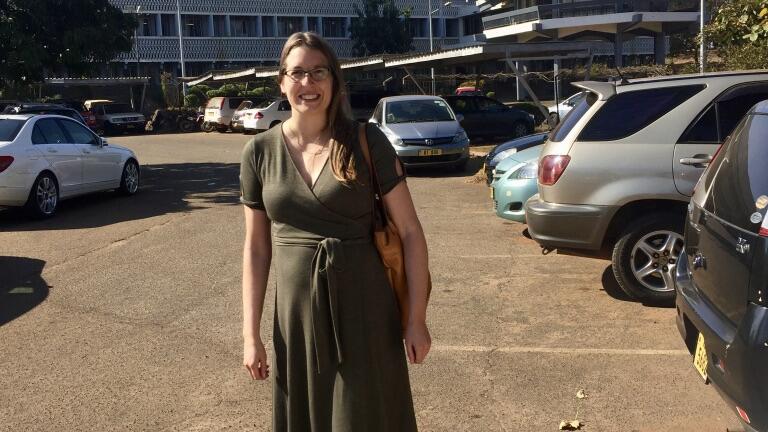
Nicole Moen MSc
Chronic lung diseases are increasingly recognised in Malawi, one of the world’s largest producers of tobacco. In Malawi household air pollution, smoking and high rates of lung infections, including TB, combine to exacerbate the risk of asthma, chronic obstructive pulmonary disease and a condition called bronchiectasis. Travelling through Malawi in 2018, capturing interviews with key stakeholders involved in policy formation and clinical care for chronic respiratory diseases was an insightful and unique experience for me. The interviews and interactions provided me with context and understanding of the Malawi Health Care system, enriching my knowledge beyond what is written in the national strategy plans or journal articles.
Meeting with clinicians who work in the central hospitals’, chest clinics, and with the only respiratory clinician in the country opened up a platform for practitioners to share their perspectives of chronic respiratory disease diagnosis and management in Malawi, as well as a chance to share the challenges they face. Interviewing policymakers in Malawi revealed their excitement and eagerness in wanting to address the gap in care for chronic respiratory disease. Through conversations, participants shared real, honest perspectives over the global realisation that non-communicable diseases, like chronic respiratory disease, are not only in the West with wealthy populations and among people who lived sedentary lifestyles.
Chronic respiratory disease is startlingly absent from the policy agenda in Malawi, and its burden continues to go unrecognised. The majority of participants interviewed were not aware of the extent of chronic respiratory disease in Malawi. A cycle of neglect is played out from the omission of chronic respiratory disease from the 2009 and 2017 WHO-funded non-communicable disease prevalence surveys to its absence in the National Health Strategic Plan 2017-2022. The conditions are thus invisible, and this affects the government’s and its partners’ ability to plan and deliver training, protocols, prevention and education as well as treatment of chronic respiratory disease.
Available care for common conditions like asthma, bronchiectasis and chronic obstructive pulmonary disease remains very centralised in Malawi, limiting access to diagnosis and treatment. Discussion about stock-outs of inhaled steroids in primary health centres dominated researchers' and partners' conversations. The government procurement trust follows national policy to only procure steroid inhalers for central hospitals on individual order requests, creating restricted access. The lack of knowledge regarding diagnosis, poor management by the health workforce, and the missing provision of care for chronic respiratory disease at primary health centres (where only emergency medicines are available) makes it a struggle to treat and prevent chronic respiratory disease at lower levels of the health system.
Two things stood out for me during interviews and showed that things are starting to change in Malawi. Firstly, research done by REACH Trust demonstrated the importance of a decentralised approach and this message is gaining traction at the national level. Secondly, Chronic Care Clinics, funded by the World Diabetes Foundation https://www.worlddiabetesfoundation.org/projects/malawi-wdf14-938, opened in 16 district health facilities and some larger primary care facilities. This Foundation provides training for healthcare professionals on screening and improving care for patients, and the location at district level ensures clinicians play a role. The initial donor focus on diabetes and hypertension has now been expanded to include asthma education materials, although the absence of treatment and spirometry equipment for diagnosing and monitoring of chronic respiratory disease remains a challenge. Chronic respiratory disease is considered one of the four main non-communicable diseases globally, and its inclusion in chronic care clinics demonstrates how donors priorities and national agendas can align to meet the needs of patients at these initial sites.
Everyone interviewed for the project added a piece to the puzzle and only when they were able to dedicate time to investigate and clarify perception of challenges in diagnosing and treating of chronic respiratory disease was a broader picture able to come into focus. Moving forward and sharing findings will hopefully enable collaboration and solutions to providing chronic care management for respiratory disease in Malawi.